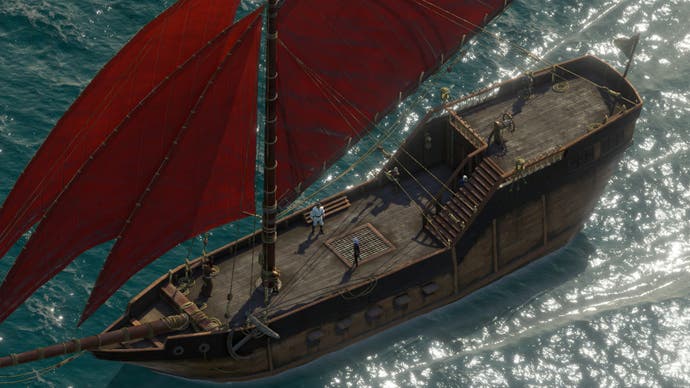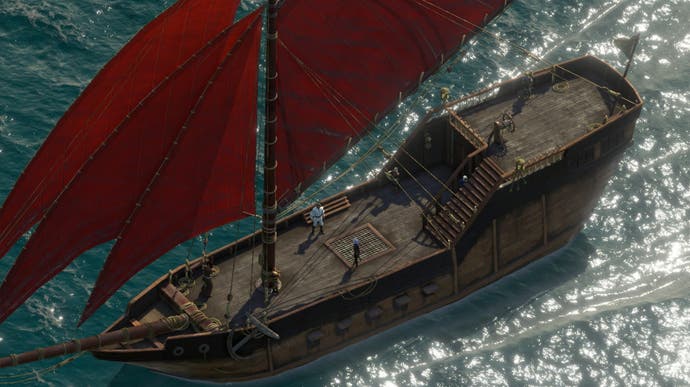Low Deadfire sales means Obsidian would have to "re-examine the entire format of the game" before committing to Pillars of Eternity 3
Says design chief.
Will there be a Pillars of Eternity 3? It sounds like the series' design chief wants to work out what went wrong with the last game before taking on another sequel.
Old-school role-playing game Pillars of Eternity 2: Deadfire was critically acclaimed but sold poorly compared to its predecessor and other, similar games. Obsidian's Josh Sawyer has said he wants to work out why before committing to making Pillars of Eternity 3.
"That is not something that I get to decide, but I do think that the relatively low sales of Deadfire mean that if we consider making another Pillars game in this style, we're going to have to re-examine the entire format of the game," Sawyer wrote on his Tumblr.
"It is difficult to know exactly why a sequel sells worse than its predecessor if both games review relatively well. Is it because the first game satisfied the existing need and the audience just wasn't interested in the second? Is it because awareness was lower for the sequel? Is it because despite the strong reviews and the strong sales for the first game, people didn't 'really' like it? Maybe it's a combination of all of these things.
"The problem is that without really understanding the reason(s), it's hard to know how to move forward. It would be easier in some ways if Deadfire were also a colossal critical failure and we could point to the massive screw-ups that we needed to address. Players did criticise the low difficulty at launch and the main plot, which I think are fair and reasonable, but those problems alone don't really explain the difference in sales. And while player reviews were weaker for Deadfire than for Pillars 1, professional criticism tended to say that Deadfire was an improvement over the first game in most areas.
"(Yes, Deadfire has an 88 Metacritic and Pillars 1 has an 89 Metacritic, but IMO Pillars 1′s review scores benefited from a nostalgia bump.)
"Players who hate RTwP (real-time with pause) combat will say that it's because Deadfire continued using RTwP combat, in contrast to the phenomenally better-selling (and better-reviewed) turn-based Divinity: OS2. Even if that's true, Pathfinder: Kingmaker, which generally had lower review scores than Deadfire, sold better than Deadfire and had RTwP combat.
"I'm sure some of the people reading this think they know precisely why Deadfire sold worse than Pillars 1. I don't have that confidence, which is one of several reasons why I am leery about trying to direct a sequel. I couldn't give our (Obsidian's) audience the game that they wanted and without understanding where I went wrong, I would be guessing at what the problems are and how to remedy them."

Sawyer added thoughts to the debate on Twitter, pointing to Deadfire's tough comparison with Pillars of Eternity 1, which benefited from the hype around early crowdfunded video games.
In the time since Obsidian launched Deadfire, Microsoft bought the studio and it released Fallout: New Vegas spiritual successor The Outer Worlds.
Where Deadfire clearly flopped, it sounds like The Outer Worlds has done the business for publisher Take-Two. This week the company called the RPG "a critical and commercial success", and said it was "exceeding our expectations". Take-Two boss Strauss Zelnick added: "It's outperforming our expectations handily, got amazing reviews, we're super excited about it, but it's very, very early. So as we learn more, we will disclose more."
In many ways it feels like Obsidian has already moved on from Pillars of Eternity, and thoughts now turn to the studio's first Microsoft-exclusive game.
As for Pillars of Eternity 3, it sounds like Obsidian has a lot to work out about the series before it'll consider making it.

